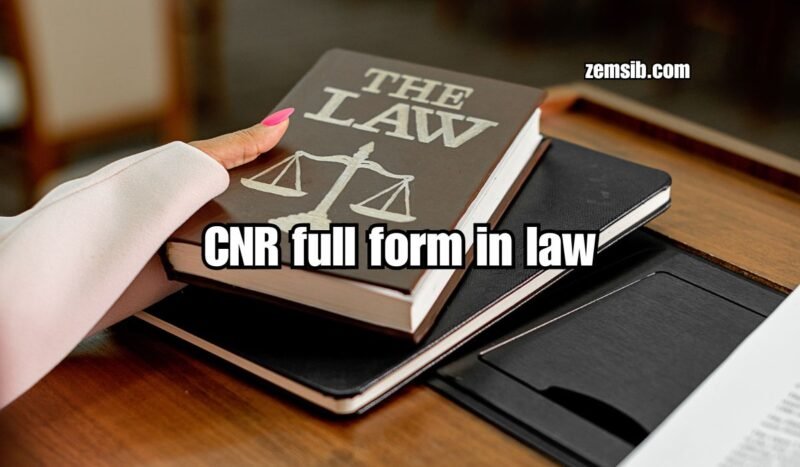The CNR full form in law is Case Number Record. Understanding this terminology is essential for navigating the courtroom effectively. A Case Number Record is a unique identifier assigned to each court case. This reference point is crucial for tracking case materials throughout legal proceedings. Think of it as a unique identification number, similar to a Social Security Number (SSN) but for your case. It simplifies case management for court officials, lawyers, and plaintiffs by providing a consistent way to locate case information both online and in physical court records.
The CNR functions as the case’s fingerprint, making it easier to find relevant information. It assists plaintiffs in tracking their cases on government eCourts websites, promoting legal transparency and informed participation. Court officials can streamline case management by using the CNR to access case files, update records, and schedule hearings efficiently. Lawyers also rely on the CNR for consultation and communication, sharing it with clients and opposing counsel to ensure alignment and coordination.
What Else Should You Know About CNR?
There are various ways to find the CNR for a case. Typically, the Case Number Record will be included in the initial case documents filed or served during a lawsuit. Many court systems offer online case searches where you can look up the CNR using the case name or details. Knowing the specific court location helps narrow down your search. Attorneys can easily provide the CNR when needed.
Staying informed about your case is crucial, and checking the CNR website regularly will keep you updated on hearings, court orders, and overall case progress. Tracking hearing dates through the CNR helps you prepare for court. Sharing the CNR with your lawyer facilitates better communication and provides access to case details. The CNR is an essential tool for both litigants and lawyers, aiding in case tracking, planning, and reference throughout the legal process.











